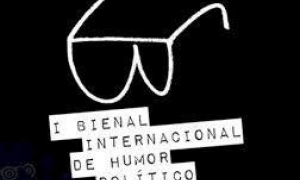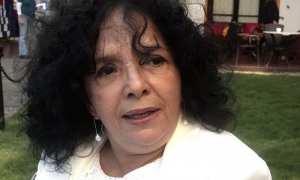
Juan Formell's itinerary is inexhaustible, a journey of comings and goings, roots and flights, from the starting point to infinity. Because what is infinity if not that dimension in which new horizons become apparent as we advance?
We can immerse ourselves, as we always do, much more in the 80th birthday of the extraordinary creator, in his music, conceived to dance, to enjoy, to move the body and the spirit, but also to know how each season of his passage through the world responded to a reason of art and life, to a proposal born from the mind and the heart.
What began on December 4, 1969, the first public performance of Los Van Van, in Havana's La Rampa, came from long before, from fruitful learning and the awareness that it was possible and essential to revolutionize Cuban popular dance music.
No genre of that vast area of the national culture, one of those that best identifies us, fell from the sky. Neither the danzón, nor the bolero, nor the son, nor the mambo, nor the chachachá, although associated with the names of illustrious musicians, were due to a sudden illumination; they were forms that were in the environment, which only needed to crystallize in works and connect with the people.
At the end of the 1960s, Juan felt that the time had come to take the leap, and not exactly into the void. The composer had a lot to say and he was already saying it, both in the Revé orchestra -the extended play of 1967 of the Areíto label, in which the established Aragón orchestra alternated with two pieces by Juan for the collective of the master from Guantanamo, El martes and Qué bolá qué bolón, very well received by the public-, and by the way the great Elena Burke performed songs where he forged a style that would be unmistakable, such as De mis recuerdos, Y ya lo sé, Lo material or Pero qué será de mí.
It was time for Los Van Van to coin a term, songo. In Cuba, we have been very given to those baptisms and the decade of the 1960's was prodigal: pacá, pilón, simalé, afroshake and a long list that, deep down, were related to the need to break inertias and revalue the backbone of the Son tradition. The songo was no more than a wake-up call; what actually happened was a real revolution in the way of understanding the transition towards novelty without betraying a lineage. To assimilate what could be assimilated from rock, to introduce variations in the rhythmic pattern -the tumbao of César Pedroso, his own bass and the percussion of Blasito Egües and Changuito Quintana-, to breathe new breath into the charanga format, to add trombones at a certain moment, to be attentive to what his contemporaries, inside and outside Cuba, were doing or were about to do –here, Irakere, NG la Banda, the salseros abroad, and let Adalberto's son, jazz and rumba, the new trova and Brazilian tropicalism come along-, and never stop.
As he once told Amaury Pérez: "I specialized in what I started to work on a lot, songo, timba and all that history. That is, in creating a new Cuban dance music, regardless of the fact that son is son, a common denominator, but in itself it is a new dance music".
Indeed, a new music that recorded the character of the changes of an era, those that took place on the dance floor, but also in everyday life. An unprejudiced and neocostumbrist social chronicle, with an ear to the street. Not for the sake of following a passing wave –putting some random things together-, but to make fashionable a way of being and feeling, moving away from what Leonardo Acosta, with his usual sharpness, warned in popular dance music: "The only danger we see always lurking is repetition, which in turn brings stagnation, which can only be avoided with creativity, constant innovation and the refusal to conform to established formulas".
Juan Formell was the locomotive of an unstoppable train. From Yuya Martínez and Soy yo el que te busca to Arrasando and La maquinaria, the innovative impulse soars in time. Shortly before his passing on the first day of May 2014, he summed up his poetic art in the final couplet of La fantasía: "Soñar, soñar no cuesta nada / la vida sin un sueño no vale nada" (Dreaming, dreaming costs nothing / life without a dream is worth nothing).
Translated by ESTI






